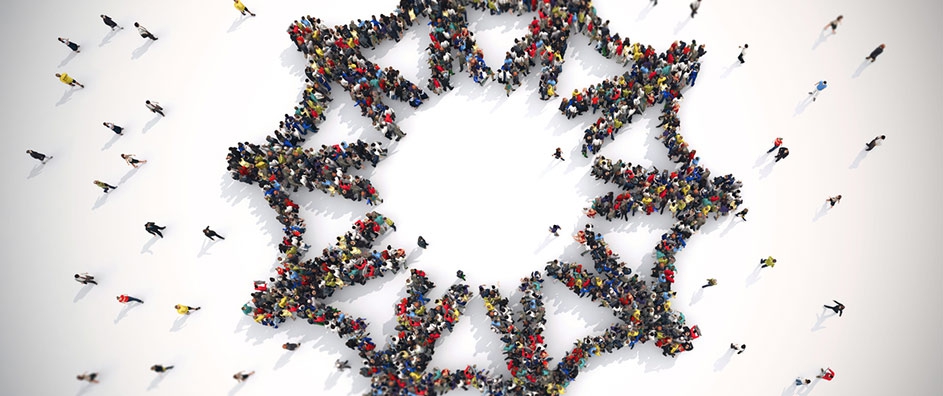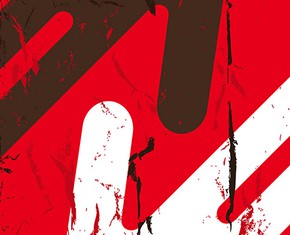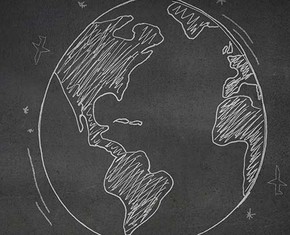The views expressed in our content reflect individual perspectives and do not represent the authoritative views of the Baha'i Faith.
pac·i·fism: n. opposition to the use of force under any circumstances.
The previous essay in this series ended with a seminal quote about killing from Baha’u’llah’s Most Holy Book:
…let no soul slay another; this, verily, is that which was forbidden you in a Book that hath lain concealed within the Tabernacle of glory. What! Would ye kill him whom God hath quickened, whom He hath endowed with spirit through a breath from Him? Grievous then would be your trespass before His throne! Fear God, and lift not the hand of injustice and oppression to destroy what He hath Himself raised up; nay, walk ye in the way of God, the True One. – p. 45.
So given this forthright, crystal clear legal prohibition from the Baha’i book of laws, how do Baha’is view self-defense, war, and the whole question of the death penalty? Specifically, how does Baha’u’llah’s Most Holy Book, which also allows the use of capital punishment for certain crimes, deal with the seeming internal contradiction between these two important laws about the taking of human life?
Properly, this deep subject could easily fill many books.
To understand these principles, they have to be put into context with the entire body of Baha’i law, which does not call for strict pacifism on the part of society itself. On the one hand, Baha’is believe that individuals should never harm or kill others. In fact, Baha’u’llah says that giving your own life is preferable to taking the life of another person:
…rendering assistance unto God, in this day, doth not and shall never consist in contending or disputing with any soul; nay rather, what is preferable in the sight of God is that the cities of men’s hearts, which are ruled by the hosts of self and passion, should be subdued by the sword of utterance, of wisdom and of understanding. Thus, whoso seeketh to assist God must, before all else, conquer, with the sword of inner meaning and explanation, the city of his own heart and guard it from the remembrance of all save God, and only then set out to subdue the cities of the hearts of others.
Such is the true meaning of rendering assistance unto God. Sedition hath never been pleasing unto God, nor were the acts committed in the past by certain foolish ones acceptable in His sight. Know ye that to be killed in the path of His good pleasure is better for you than to kill. – Baha’u’llah, The Summons of the Lord of Hosts, pp. 109-110.
But on the other hand, Baha’is also believe that society as a whole does have the right to use force to defend and protect itself:
Baha’is recognize the right and duty of governments to use force for the maintenance of law and order and to protect their people. Thus, for a Baha’i, the shedding of blood for such a purpose is not necessarily essentially wrong. The Baha’i Faith draws a very definite distinction between the duty of an individual to forgive and ’to be killed rather than to kill’ and the duty of society to uphold justice… In the present condition of the world Baha’is try to keep themselves out of the internecine conflicts that are raging among their fellow men and to avoid shedding blood in struggles, but this does not mean that we are absolute pacifists. – The Universal House of Justice, February 9, 1967.
So from a Baha’i perspective, societies have the option, in dire circumstances, to use force defensively:
It is true that Baha’is are not pacifists since we uphold the use of force in the service of justice and upholding the law. But we do not believe that war is very necessary and its abolition is one of the essential purposes and brightest promises of Baha’u’llah’s Revelation. His specific command to the kings of the earth is: ’Should any among you take up arms against another, rise ye all against him, for this is naught but manifest justice.’ (Tablet to Queen Victoria, “The Proclamation of Baha’u’llah, p. 13) The beloved Guardian has explained that the unity of mankind implies the establishment of a world commonwealth, a world federal system, ’…liberated from the curse of war and its miseries … in which Force is made the servant of Justice…’ whose world executive ’backed by an international Force… will safeguard the organic unity of the whole commonwealth.’ This is obviously not war but the maintenance of law and order on a world scale. Warfare is the ultimate tragedy of disunity among nations where no international authority exists powerful enough to restrain them from pursuing their own limited interests. Baha’is therefore ask to serve their countries in non-combatant ways during such fighting; they will doubtless serve in such an international Force as Baha’u’llah envisions, whenever it comes into being. – From a letter written on behalf of the Universal House of Justice, September 11, 1984.
In the same way, when they are attacked individuals have the right to self-defense, as long as that self-defense does not deteriorate into retaliation:
…a Baha’i should not surrender himself, but should try, as far as circumstances permit, to defend himself, and later on lodge a complaint with the government authorities. – The Universal House of Justice, 26 May 1969.
This means, taking into account the principle of the right of a society to protect itself, that it can, in extreme cases, execute a dangerous criminal:
An individual has no right to seek revenge, but the body politic has the right to punish the criminal. Such punishment is intended to dissuade and deter others from committing similar crimes. It is for the protection of the rights of man…
But the body politic has the right to preserve and protect. It holds no grudge and harbours no enmity towards the murderer, but chooses to imprison or punish him solely to ensure the protection of others. – Abdu’l-Baha, Some Answered Questions, newly revised edition, pp. 309-310.
When could that happen? We’ll look at that question in the next essay in this series.
















Comments
Sign in or create an account
Continue with Googleor